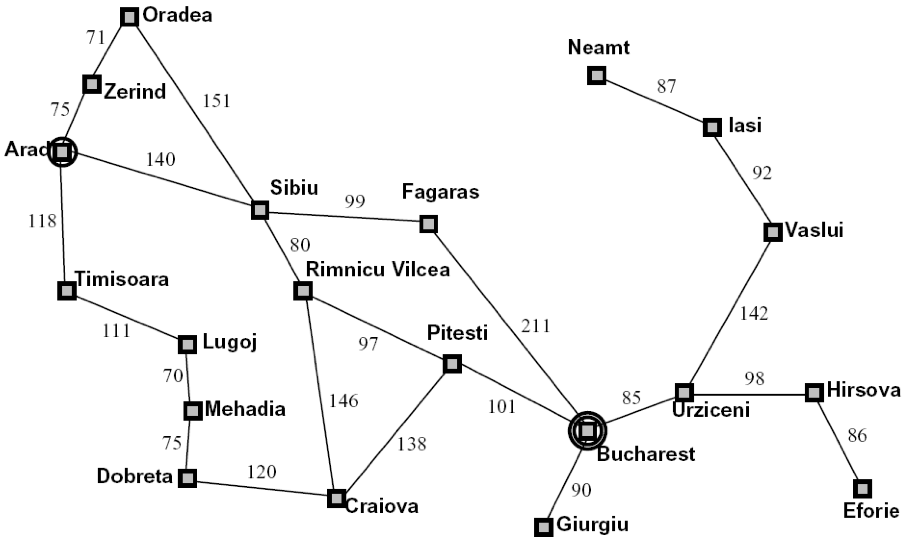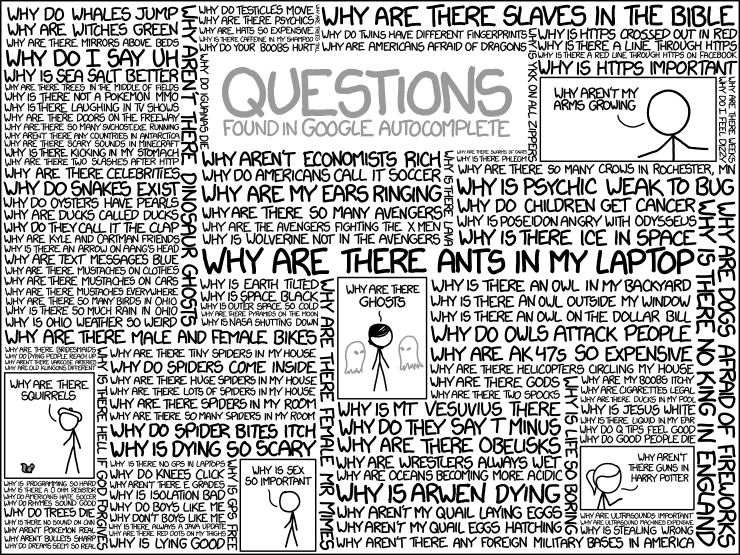Search Problems
CSE 440: Introduction to Artificial Intelligence
Vishnu Boddeti
Content Credits: CMU AI, http://ai.berkeley.edu
Today
- Agents that Plan Ahead
- Search Problems
- Reading
- Today's Lecture: RN Chapter 3.1-3.4
- Next Lecture: RN Chapter 3.1-3.4
Reminder: Rational Agents

- An agent is an entity that perceives and acts.
- A rational agent selects actions that maximize its (expected) utility.
- Characteristics of the percepts, environment, and action space dictate techniques for selecting rational actions.
Rational Agents
- Are rational agents omniscient?
- No - they are limited by what they can perceive
- Are rational agents clairvoyant?
- No - they lack knowledge of environment dynamics
- Do rational agents explore and learn?
- Yes - essential qualities required in unknown environments
- So, rational agents are not necessarily successful, but they are autonomous.
Rational Agents
- Performance Measure
- -1 per time step;+10 food; +500 win; -500 die; +200 hit scared ghost
- Environment
- Pacman dynamics + ghost behavior
- Actuators
- North, West, East, South, Stop (idle)
- Sensors
- entire state is visible

Robotaxi - PEAS
- Performance Measure
- income, happy customer, vehicle costs, fines, car, insurance
- Environment
- streets, other drivers, customers, etc.
- Actuators
- steering, brake, gas, display/speaker
- Sensors
- cameras, lidar, radar, ultrasonic, accelerometer, mechanical sensors, microphone, etc.

Environment Categorization
| Pacman | Robotaxi | |
|---|---|---|
| Fully or Partially Observable | fully | partial |
| Single or Multi Agent | multi | multi |
| Deterministic or Stochastic | deterministic | stochastic |
| Static or Dynamic | static | dynamic |
| Discrete or Continuous | discrete | continuous |
Environment Categorization
- Reflex agents:
- Choose actions based on current observation (and maybe memory)
- May have memory or a model of the world's current state.
- Do not consider future consequences of actions
- Consider how the world IS as opposed to how it would be.
- Can a reflex agent be rational?
Agents that Plan Ahead
- Planning Agents:
- Decision based on predicted consequences of actions
- Must have a transition model : how the world evolves in responses to actions
- Must formulate a goal
- Consider how the world WOUDL BE as opposed to how it is
- Spectrum of Deliberativeness:
- Generate complete, optimal plan offline, then execute
- Generate simple, greedy plan, start executing, replan if necessary
Search Problems
What are Search Problems?
- A search problem consists of:
- A state space:
- A successor function (actions, costs):
- A start state and goal test








- A solution is a sequence of actions (a plan) which transforms the start state to the goal test.
Search Problems Are Models


Example: Traveling in Romania

- State Space:
- Cities
- Successor Function:
- Roads: travel to adjacent city with cost=distance
- Start Space:
- Arad
- Goal Test:
- Is state == Bucharest?
- Solution?
What is in a State Space?

- Problem: Pathing
- States: (x,y) position
- Actions: NEWS
- Successor: update location
- Goal Test: Is (x,y) == END
- Problem: Eat-All-Dots
- States: (x,y), boolean for each dot
- Actions: NEWS
- Successor: update location, boolean for dots
- Goal Test: All dot booleans are false
Search Space Size
- World State
- Agent Positions: 120
- Food Count: 30
- Ghost Positions: 12
- Agent Orientation: NEWS
- Size
- World States: 120 x 230 x 122 x 4
- States for Pathing: 120
- States for Eat-All-Dots: 120 x 230

Q & A

